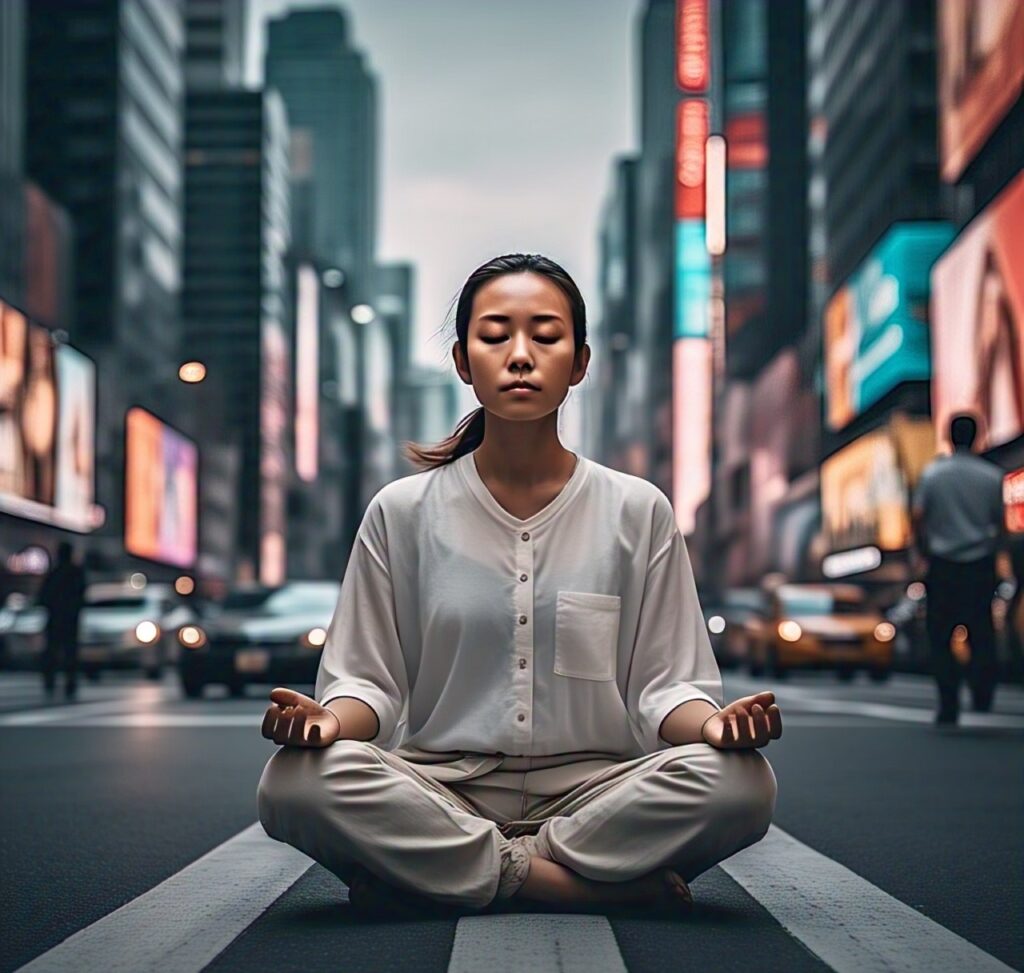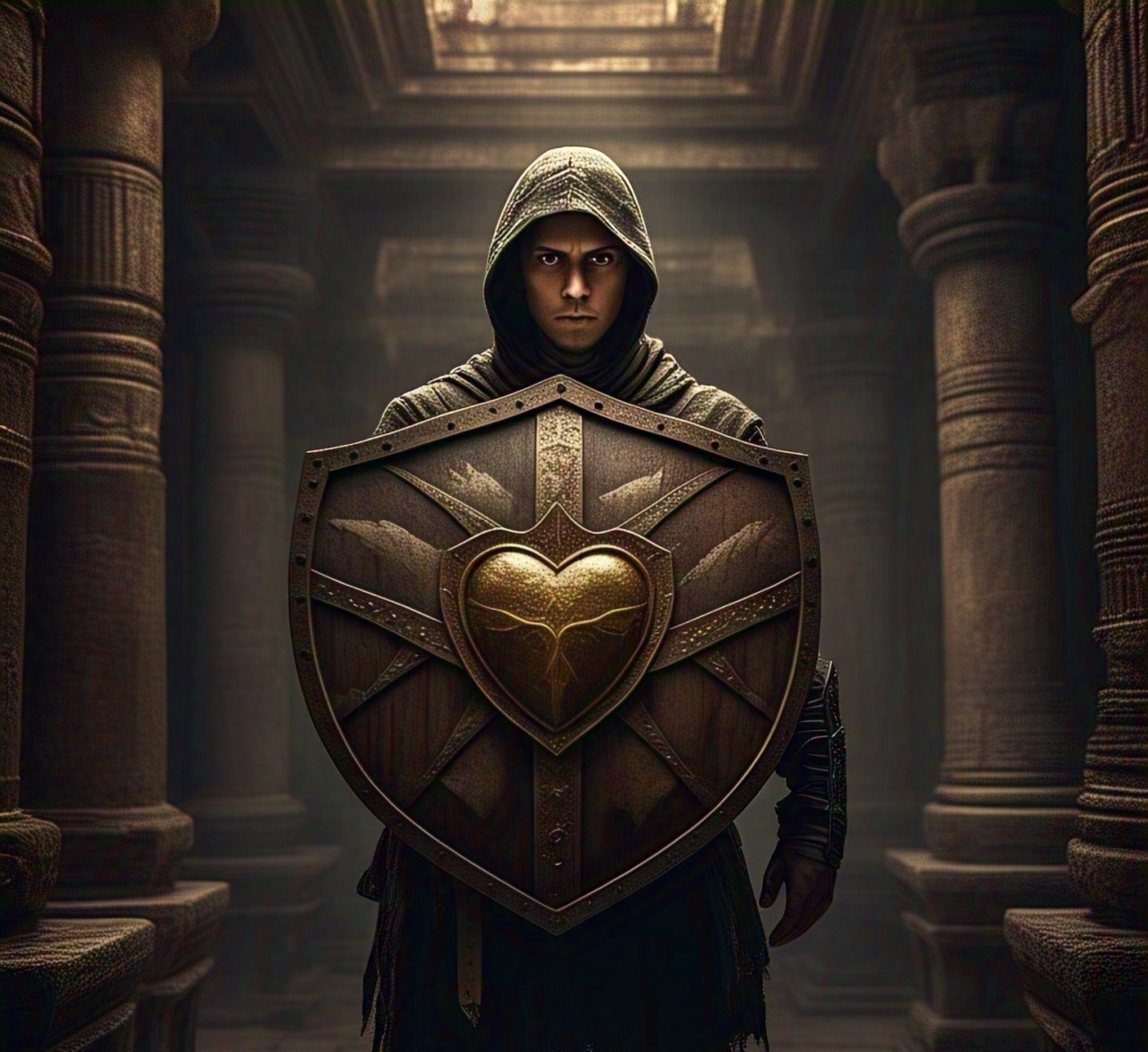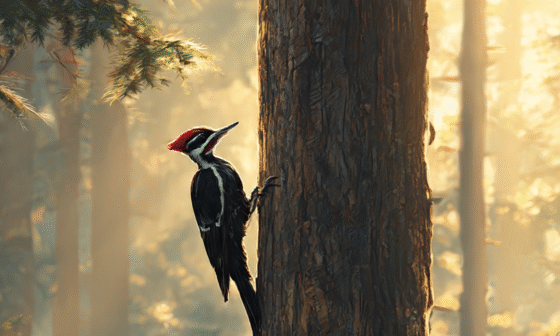The world today is spinning faster than ever, with the endless notifications, the constant opinions, trends and relentless pressure, there is one force that stands apart. This force is not loud; it does not dominate headlines, and it rarely gets credit for success, stability, or strength, but yet it is one of the most powerful and underrated forces in the world: Stillness.
So again today, after another amazing episode from the Daily Stoic Podcast by Ryan Holiday. I want to shed more light on what he talked about.
The Stoic Emperor Marcus Aurelius understood this, because in his Meditations, he wrote repeatedly about stillness, not as a luxury, but as a necessity. He urged himself to be like a rock the waves keep crashing over: Unmoved! Unshaken! And calm in the middle of chaos! His beloved stepfather, Antoninus Pius, handed him power with a single word: Aequanimitas – equanimity.
Stillness is the kind of clarity that lets you think clearly when others panic; it is the inner strength that steadies you when the world feels like it is falling apart. It is what allows focus, creativity, courage, and compassion to rise to the surface, and without it, we drift, but with it, we thrive.
But the question here is how often do we experience it? How often do we pause long enough to quiet the noise within, let alone the noise around us? The truth is, we are starving for stillness and in that hunger, we will find the reason so many are exhausted, anxious, and overwhelmed. So today and with this article I am calling us to stillness, not in theory, but in practice. Today’s article is an invitation to rediscover a power that has shaped the greatest leaders, the deepest thinkers, and the calmest hearts throughout history.
Stillness is not passive! It is strength restrained! It is peace in motion! And if you learn to find it, you will not just only survive this world, you will be able to shape it.
Stillness Is Strength, Not Surrender
When most people hear the word stillness, they immediately assume that it means doing nothing, but this is very very far from the truth. Stillness is not laziness, idleness, or escaping something; it is not checking out of life,but instead, it is checking in with purpose. True stillness is strength under control; it is choosing to respond rather than react, and to pause instead of panic.
Marcus Aurelius ruled an empire during plagues, wars, and political betrayal, but in the middle of that chaos, he returned over and over again to the idea of stillness. He knew that a leader who cannot control his inner mind and world will be ruled by the outer one. He once wrote: Nowhere you can go is more peaceful, more free of interruptions than your own soul.

Stillness gives us perspective; it gives us room to think, and it is what separates those who act with wisdom from those who are driven by impulse. Let us think and picture this:
- A surgeon’s steady hand.
- A firefighter’s calmness in crisis.
- A pilot’s composure in turbulence.
That is not passivity; it is power!
So in today’s reactive world, stillness is a true king’s act, one who knows he rules over his heart and mind, irrespective of the quake outside. It makes you unpredictable to your enemies, inspiring to your peers, and dependable to those who follow your lead. It is the true foundation of all wise action and clear thinking, and in a society addicted to speed, the person who can pause with purpose possesses this strength.
The War Around You and the Peace Within
We do not have to look far to see how loud and polluted the world has become. Again with the constant humming of notifications, the pressure to respond immediately, and the daily rush of obligations, it all pulls us outward, breaking and likely killing our attention and exhausting our energy, but while the chaos is real, it does not have to own us. The Stoics, like the Buddhists and other ancient thinkers, understood this clearly: The real battle is not in the noise but in how we respond to it.
As Marcus Aurelius wrote, “Be like the cliff against which the waves continually break; but it stands firm and tames the fury of the water around it.”
Stillness does not require silence in the world; it requires calm in the soul. Think about what will happen when we allow ourselves even a few moments of deliberate stillness: Clarity returns, our priorities become visible again. We stop being pushed and start choosing. Stillness creates space between the stimulus and our response, and this is space where wisdom lives.
It is in this space that we make better decisions, communicate more compassionately, and act more intentionally. Stillness is not withdrawal from the world; it is the mastery that allows us to live in it with grace and purpose.
The Daily Practice of Equanimity: Stillness
Stillness is not something we stumble into by accident; it is something we cultivate and build with intention. Marcus Aurelius did not achieve his unshakable inner calm by waiting for peace and quiet, he trained himself for it. In wars, plagues, political tension, and family loss, he still found moments of calm because he made time for it: He journaled! He reflected! He returned to first principles, and the same should go for us. Stillness is an act of resistance and it requires discipline.
So how do we practice it?
- Start with the morning: Instead of reaching for your phone, reach for a moment of quiet. Meditate. Reflect. Write.
- Simplify your day: Focus on one meaningful task at a time. Multitasking fragments the mind; focus aligns it.
- Build margin: Do not schedule every moment. Leave space for breath, thought, and recovery.
- End with gratitude: Before sleep, pause. Ask yourself what mattered today. Let go of what did not.
Again stillness is not passive; it is active mastery over your reactions. It is the power to pause before speaking, to think before acting, and to be fully present, even in discomfort.
As the Stoics taught, and as Marcus modeled, equanimity (stillness) is not just an idea; it is a daily practice, one that builds inner fortitude, moral clarity, and real freedom.
Stillness as Strength in a Chaotic World
Marcus Aurelius and generations of wise thinkers from Epictetus to Buddha, understood that stillness is actually strength; it is the posture of the unshaken, the composed, and the deeply rooted.
Think about it: The strongest trees are not the ones that fight the wind; they are the ones with roots deep enough to endure it. Stillness does not mean we ignore what is going on around us; it means we engage from a place of centeredness and power.
A leader who reacts in haste, who is driven by anger or anxiety, will only create more chaos. But a leader with stillness brings calm, makes better decisions, and earns trust. A parent, a friend, a spouse, anyone who chooses peace over panic, becomes an anchor for others.
Stillness is the refusal to be pulled into every drama, every distraction, and every false urgency. It is clarity in the storm! It allows you to respond rather than react, to act from principle rather than impulse.
The person with stillness changes the room when they walk in; their presence radiates calm. Their decisions create order. Their soul, anchored in truth, is immune to the chaos around them.
Again, stillness is not escape; it is engagement with life on higher terms, and that makes it not only powerful but essential.
Conclusion
Stillness is not passivity! It is NOT inaction or apathy! It is the most powerful and underrated force in the world because it allows us to live and lead with clarity, courage, and compassion without being driven by chaos, fear, or noise.
In our own lives, we must carve out and constantly maintain the space for stillness. In that space, we think better, act truer, love deeper. We become who we are meant to be.
Stillness gives us back our power, not the kind that controls others, but the kind that governs ourselves. So seek it! Practice it! Guard it! Because when you find stillness, you have found the path to your best, most grounded, most impactful life.
The world may never see it coming, but it will always feel its power. Stillness is the key!





